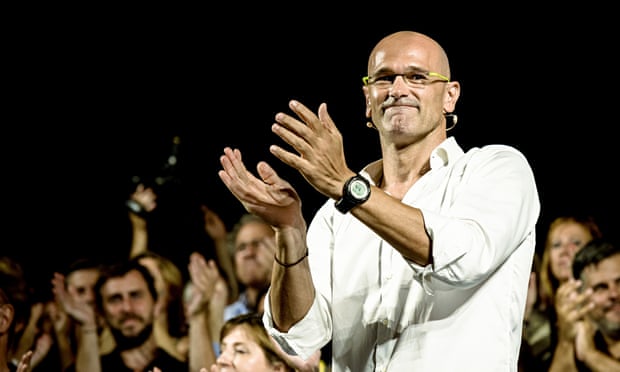
Aussitôt, le président du gouvernement espagnol, Mariano Rajoy, a réagi en convoquant une conférence de presse pour une déclaration solennelle. "Deux groupes élus, favorables à l'indépendance, mais qui n'ont pas obtenu la majorité des voix, ont présenté une proposition contraire à la constitution, à la loi, aux votes des Catalans, à la démocratie et à la volonté de tout le peuple espagnol. C'est un acte de provocation qui veut violer la loi parce qu'elle n'est pas de leur côté mais qui n'aura aucun effet. Nous n'agirons que dans le cadre de la loi et le gouvernement que je préside mettra tout en oeuvre pour que cette proposition ne voit jamais le jour. Nous mettrons en oeuvre tous les arguments politiques et judiciaires pour l'intérêt général de l'Espagne."
Le parlement catalan a été installé hier avec à sa tête Carme Forcadell, indépendantiste convaincue. Pour les Catalans, le manque de dialogue avec Madrid les pousse à déclarer leur indépendance dans un "acte d'obéissance au peuple catalan". Neus Munté, la porte-parole du gouvernement catalan, a indiqué que le parlement "espérait un peu de respect de la part du gouvernement espagnol et constate une menace. Nous ferons notre possible pour respecter le mandat démocratique que nous avons reçu des Catalans".
La traduction du texte:
"Le parlement catalan
Premièrement - Constatant que le mandat démocratique obtenu lors des élections du 27 septembre est basé sur une majorité de sièges des forces parlementaires qui avaient pour objectif que la Catalogne devienne indépendante avec une large majorité souverainiste en voix et en sièges permet l'ouverture d'un processus constituant non subordonné.
Deuxièmement - Déclare solennellement le début du processus de création d'un état catalan indépendant sous la forme d'une république.
Troisièmement - Proclame l'ouverture d'un processus constituant, citoyen, participatif, ouvert, intégrant et actif pour préparer les bases de la future constitution catalane.
Quatrièmement - Incite le futur gouvernement (catalan) à rendre effectif ces déclarations.
Cinquièmement - Considère pertinent d'initier dans 30 jours maximum la rédaction des lois du processus constituant de sécurité sociale et de finances publiques.
Sixièmement - en tant que dépositaire de la souveraineté et de la puissance d'expression constituant, il réitère que ce Parlement et le processus de déconnexion de l'Etat espagnol ne soumettront pas aux décisions des intitutions espagnoles en particulier, le tribunal constitutionnel qu'il considère comme illégitime et sans compétence suite, entre autres, à sa décision de juin 2010 sur le statut d'autonomie de la Catalogne voté par le peuple lors d'un référendum.
Septièmement - Adoptera les mesures nécessaires pour ouvrir ce processus de déconnexion démocratique, massif, subi et pacifique avec l'état espagnol de telle manière qu'il permettra l'autonomie des citoyens à tous les niveaux et en particulier dans une participation active, ouverte et intégrée.
Huitièmement - Incite le futur gouvernement (catalan) à accomplir exclusivement ces normes et mandats émanants de cette chambre, légitime et démocratique afin de garantir les droits fondamentaux qui pourraient être affectés par des décisions des instances de l'état espagnol.
Neuvièmement - Déclare la volonté d'initier les négociations pour rendre effectif le mandat démocratique de la création d'un Etat catalan indépendant sous forme de république et, également, de le faire savoir à l'Etat espagnol, à l'Union européenne et à la communauté internationale."





















